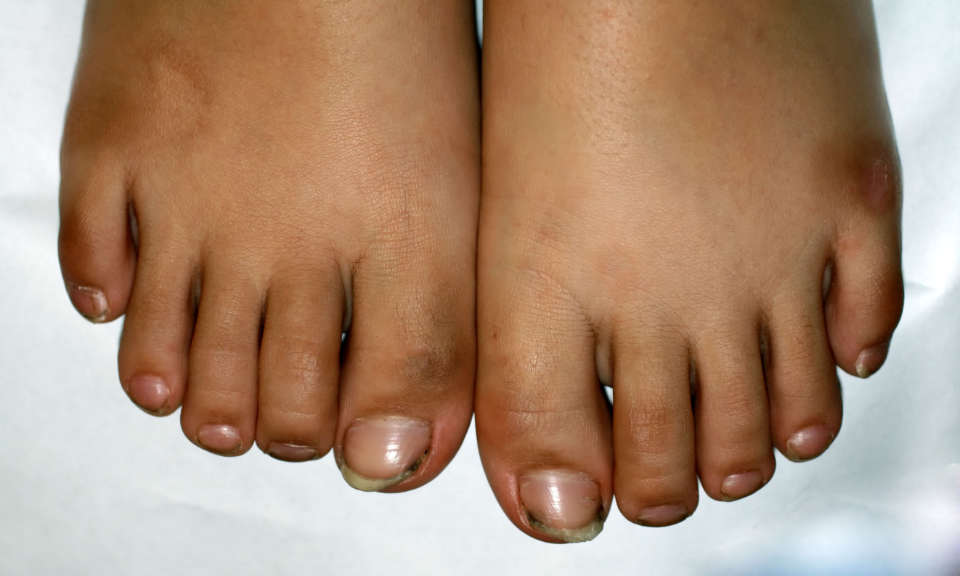Depending upon your definition of the word evil—Merriam-Webster dictionary paints it as morally reprehensible, harmful, and in archaic vernacular, “causing discomfort or repulsion”—you might struggle with correlating these definitions to the physical consequences experienced due to the effects of a marathon. However, listen to the silent plea of your body during such a race, and you’ll get an earful.
Historical evidence points to Greek athletes, often glorified in their muscular allure, running the 26.2-mile stretch wearing nothing but loin cloths. Some of the most robust among them dropped dead at the finish line, never managing to gather their laurels, but still honoured posthumously. These tales might make our contemporary extreme sports appear less daunting!
Although your body may not be able to verbally communicate the distress it goes through each time you sign up for a marathon, acknowledging the real impact and effect of a marathon on your physical state could help you make sense of this challenging relationship.
Are you apprehensive to discover the extent of the ‘evil’ your body battles when you lace up those running shoes to outdo your personal best?
If your appetite for the gritty details only extends to Halloween night horrors, it might be best to stop reading now!
Table of Contents
Effects of a Marathon: The Case of The Evil Brown Urine
You love tea. And foods prepared with soy sauce. But what you might not love is peeking into your toilet to discover the water in the bowl is brown rather than yellow. We won’t lapse into complicated scientific jargon here; suffice to say that this colour change is triggered by stressed-out muscles that release energy-producing proteins.
By the time these proteins reach your bladder, they are expressed as dark urine. It’s just a sign that your body is doing its thing so you don’t drop dead like those Greek dudes did back in the day.

Effects of a Marathon: You’re Not Breastfeeding, Are You?
Breasts get a bad rap—especially in our sexually-charged world where celebs parade on red carpets in outfits that reveal everything but strategic crotch and nipple areas. Guys get off lightly here—we don’t recall JRod showing up with JLo in a tux that hides his nipples.
That said, unless you’re breastfeeding, nothing should be discharging from your nipples on a regular basis. Unless, of course, you’re running a marathon and you failed to put nipple covers over your tender assets, leaving them vulnerable to chafing and bloody discharge. This sign of evil can be avoided if you give your breasts the TLC they deserve every time you run.
Effects of a Marathon: Wearing Little Black Toenails?
Sandal alert: Mr. Micheas Chan of Watsons Singapore admits that nail polish shades come in waves like graduated start times at marathons, and he was one of the first fashion experts to mention Ciate’s introduction of a polish named “Caviar.”
You might not have to buy a bottle of this black polish if you find blackened toenails on your feet after a killer marathon. Every time your foot lands, your toes slam into your shoes like some evil act of witchcraft.
Black toenails triggered by trauma can be compounded if you wear ill-fitting shoes. A positive spin? Imagine how much money you’ll save on trendy black nail polish if you run enough marathons.

Effects of a Marathon: When You’re Hot, You’re Hot
Male and female runners like to look hot on and off the marathon circuit. But feeling hot? Not so much. Your body heats up when you run. Literally. And the faster and longer you run, the hotter you get. This results in low-grade fevers that can top out at 39°C if you’re engaged in an extreme sport.
Happily, there’s nothing to worry about. Once skin cools down, body temperature drops—but temperature fluctuation comes with a bit of evil: It can expose you to germs floating about and if your immune system is vulnerable, that evil can invade.
Ever feel sick the day after a marathon? Doctors refer to this phenomenon as a trophy virus. And you thought all you were going to pick up at the finish line was a finisher t-shirt, finisher’s medal and drawstring bag!
Effects of a Marathon: You’re Kidneying Me, Right?
Thought that yukky brown urine issue was put to bed earlier in this article? Not so fast. We need to take you to the root of your renal system by informing you that your kidneys also get a workout when you run a marathon.
Scientists note a post-race trend of kidney injuries peaking a day after an event is run. Don’t panic. This is a temporary condition that usually resolves itself a few days later, but it serves to remind anyone with kidney issues to think twice before signing up for marathons.
Does this mean your kidneys deserve to be called evil? That’s between you and your organs.

Effects of a Marathon: Getting to The Heart of Things
When doctors evaluate patients for potential heart attacks, a telltale sign is an elevated level of the chemical troponin in the blood. It may come as a shock, but during and after a marathon, your heart likely produces troponin much the same way.
Much like a heart attack, the overexertion of your cardiac muscles during marathon training comes into play. In fact, your heart silently craves more oxygen when you push its boundaries with your marathon training plan.
Post-race, it could take months to clear this ‘unwanted guest’ from your system. In the meantime, if you experience any other signs of heart distress, it would be wise to schedule a doctor’s appointment.
Coping With The Effects of a Marathon
Evil is as evil does! Do you find solace in a prayer before you embark on your marathon training plan? Maybe you light incense, or perhaps you connect with your inner strength on a yoga mat?
Embrace the reality that your body will respond in its unique way due to the demands of your training plan, and confront these challenges fearlessly.
The mere fact that you engage in regular running and treat your body with respect instills confidence that you can overcome any hardship that comes your way. However, to boost your spiritual armour, it wouldn’t hurt to wear a Samadhi amulet or an equally powerful symbol on and off your marathon training journey.
What’s the strangest symptom your body exhibited when you ran marathons in the past?
What are the short-term effects of running a marathon on your body?
Running a marathon puts immense stress on your body, resulting in short-term effects such as muscle soreness, fatigue, inflammation, and lowered immunity. It can also lead to dehydration and nutrient deficiencies if you don’t refuel correctly.
I
Can running a marathon cause long-term damage to your body?
Yes, frequent marathon running can cause long-term issues such as repetitive stress injuries, increased risk of osteoarthritis, and potential heart damage due to prolonged cardiovascular stress. However, with proper training, nutrition, and recovery, these risks can be mitigated.
Is it normal to experience muscle soreness after a marathon?
Yes, post-marathon muscle soreness, known as Delayed Onset Muscle Soreness (DOMS), is a common side effect due to microscopic tears in the muscle fibers caused by the high-intensity exercise.
How does running a marathon affect the heart?
During a marathon, the heart pumps blood at a significantly higher rate, causing temporary stress. Although beneficial in moderation, chronic marathon running may lead to heart scarring, enlarged heart, and arrhythmias in some individuals.
Can running marathons lead to kidney damage?
Marathon running can cause a condition called Exercise-Induced Acute Kidney Injury in some runners, where the kidneys temporarily fail to filter waste from the blood. However, this is usually short-lived and kidneys generally recover within a few days.
Does marathon running increase the risk of osteoarthritis?
Frequent long-distance running can potentially increase the risk of osteoarthritis due to repetitive stress on the joints. However, risk varies greatly with factors like genetics, overall health, diet, running form, and use of appropriate footwear.
What are the psychological effects of a marathon?
Marathons can cause psychological stress due to the immense physical demand and the pressure to perform. However, finishing a marathon also provides a sense of accomplishment, boosts self-esteem, and can improve mental health.
Does running a marathon affect your immune system?
Yes, the physical stress of running a marathon can temporarily lower the immune system, making runners more susceptible to infections, particularly upper respiratory ones. However, a balanced diet, proper hydration, and adequate rest can help maintain immune health.
Is it safe for everyone to run a marathon?
While running has numerous health benefits, not everyone may be suited for the physical demands of a marathon. Prior health conditions, age, fitness level, and preparation play key roles. It’s important to consult with a healthcare provider before embarking on marathon training.
How can the negative effects of a marathon be minimised?
Negative effects can be minimised by proper training, maintaining a healthy diet, staying hydrated, wearing appropriate footwear, and ensuring adequate rest and recovery post-race. Regular medical check-ups and listening to your body’s signals are also crucial.





